Advice on Algae in the Planted Aquarium
Guest blogger: Chris (IG @shrimpery)
Shrimpery Blog Entry 2: Advice on Algae in the Planted Aquarium
Algae can be a major challenge for planted aquarium hobbyists. On my instagram account @shrimpery, I get asked about algae at least once a day. Whether you struggle with algae breakouts or algae is simply an occasional annoyance, I hope this entry will help you get algae under control once and for all.
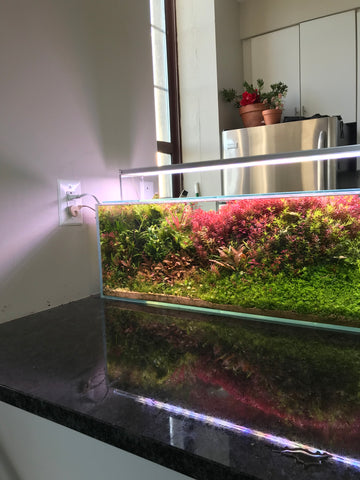
There are many competing folk theories on algae management. A quick review of planted aquarium forums will reveal heated arguments that, at best, often amount to pseudoscientific posturing. To understand what actually causes algae problems, look no further than scientific, peer-reviewed studies on the subject.
Numerous studies address the cause of excess algae in ponds, lakes, and the ocean. This body of research indicates that the true culprit is an overabundance of nutrients accumulating in the water. This process, called eutrophication, typically involves an excess of nitrogen and phosphorus being retained in the water column.
With this in mind, it makes intuitive sense that we should limit these nutrients in the aquarium. Plants need phosphorus and nitrogen to survive (among many other nutrients), but it would be foolish to have a surplus of these nutrients in the water column beyond what the plants can use. If the plants aren’t able to use these nutrients, something else will: algae. Given the opportunity, algae will take advantage of excess nutrients in the water column to thrive.
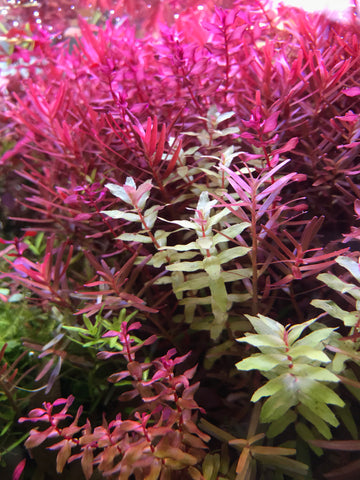
This simple idea of limiting excess nutrients is passionately challenged by certain hobbyists. They argue that it is actually a lack of nutrients in the aquarium that contributes to algae. Intuitively and scientifically, this argument makes little sense. As previously noted, research shows that this is not the case in nature; why should it be the case in the aquarium? Keep in mind that the environment of an aquarium is supposed to be a small piece of nature, not an alien planet.
The rules of nature not only apply, but leave less margin for error in such a contained environment. Think of a completely sterile bottle of water. Is there algae growing in there? No, because the algae needs environmental nutrients to build its own tissue. It follows that the only scenario in which a lack of environmental nutrients could indirectly result in algae growth would be if an aquarium’s nutrients became so inadvisably low that the plants lacked proper nutrition to live, and began to exhibit tissue breakdown; in this case, algae would be able to use the nitrogen and phosphorus released from the decomposing plant tissue to its advantage. But in a healthy and balanced environment, higher plants will always outcompete algae for nutrient resources.
My approach is thus to provide plants with just the right amount of nutrients they need to thrive, while keeping excess wastes to a minimum. To accomplish this, I dose fertilizer carefully (UNS Plant Food is recommended) in Oneand conservatively, I feed my fish only what they can eat in a few minutes (removing uneaten food), and I use a large external canister filter with plenty of media harboring beneficial bacteria to help break down wastes. Finally, frequent water changes also help prevent an accumulation of excess wastes and nutrients in the water column. Decaying organic material (from plants, fish food, or animal waste) releases excess nutrients (again, most worrisome are phosphorus and nitrogen) into the water for algae to grow. The algae’s photosynthetic growth process is accelerated by excess light, so beginners would do well to limit their photoperiod to 7-8 hours per day. I’m not personally very worried about excess light because I do not have an overabundance of unused nutrients in my tanks. The light just grows my plants.
Hopefully, this blog entry gets hobbyists to think more critically about the causes of algae in their tank, and about theories they read on the forums. My own first attempt at a planted tank in 2015 was a nightmare, with algae taking over to the point where I could barely see the plants. It was very discouraging! Luckily, I learned from that experience, and have almost no visible algae in my tanks today.
Nothing is more satisfying than a pristine-looking tank. While algae is present to some extent in all aquariums (algae is a natural part of all healthy aquatic environments), an overabundance of algae can be both unsightly and is often indicative of other underlying issues. An understanding of what causes algae breakouts can help keep them in check. It’s best to keep the pseudoscience and algae problems in the forums, not in your tank.
Supporting papers:
https://www.tandfonline.com/doi/abs/10.1577/1548-8659(1952)82%5B281%3ANAPCIF%5D2.0.CO%3B2
http://wst.iwaponline.com/content/25/12/207
https://link.springer.com/article/10.1007/s12237-011-9398-2
https://nmsfloridakeys.blob.core.windows.net/floridakeys-prod/media/archive/scisummaries/wqpb.pdf
https://link.springer.com/article/10.1007/BF02804901
Tell us - Was this article helpful? Please leave a comment below!
If you have any questions regarding this article, please DM us on Instagram, Facebook, or email support@buceplant.com so we can assist you - @buceplant




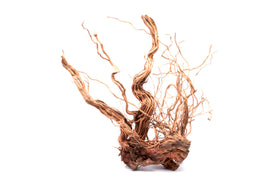
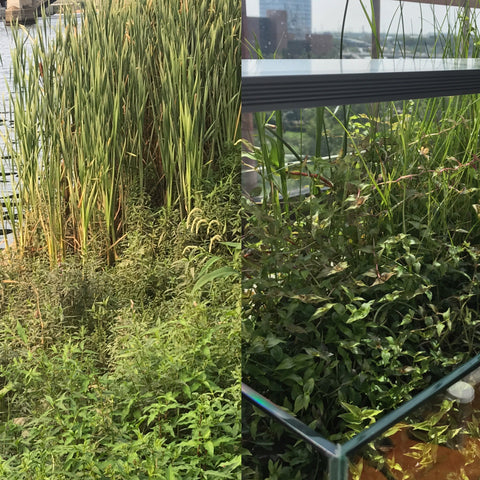
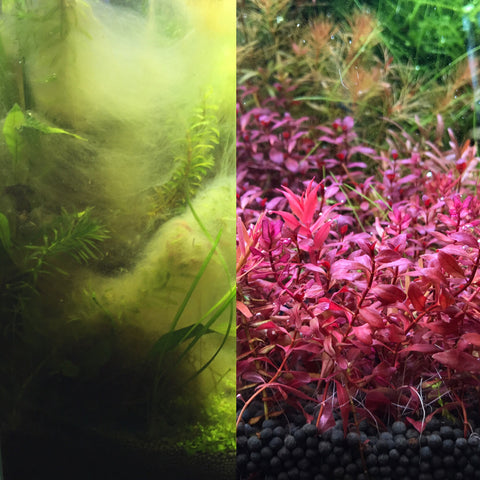
Comments
Leave a comment